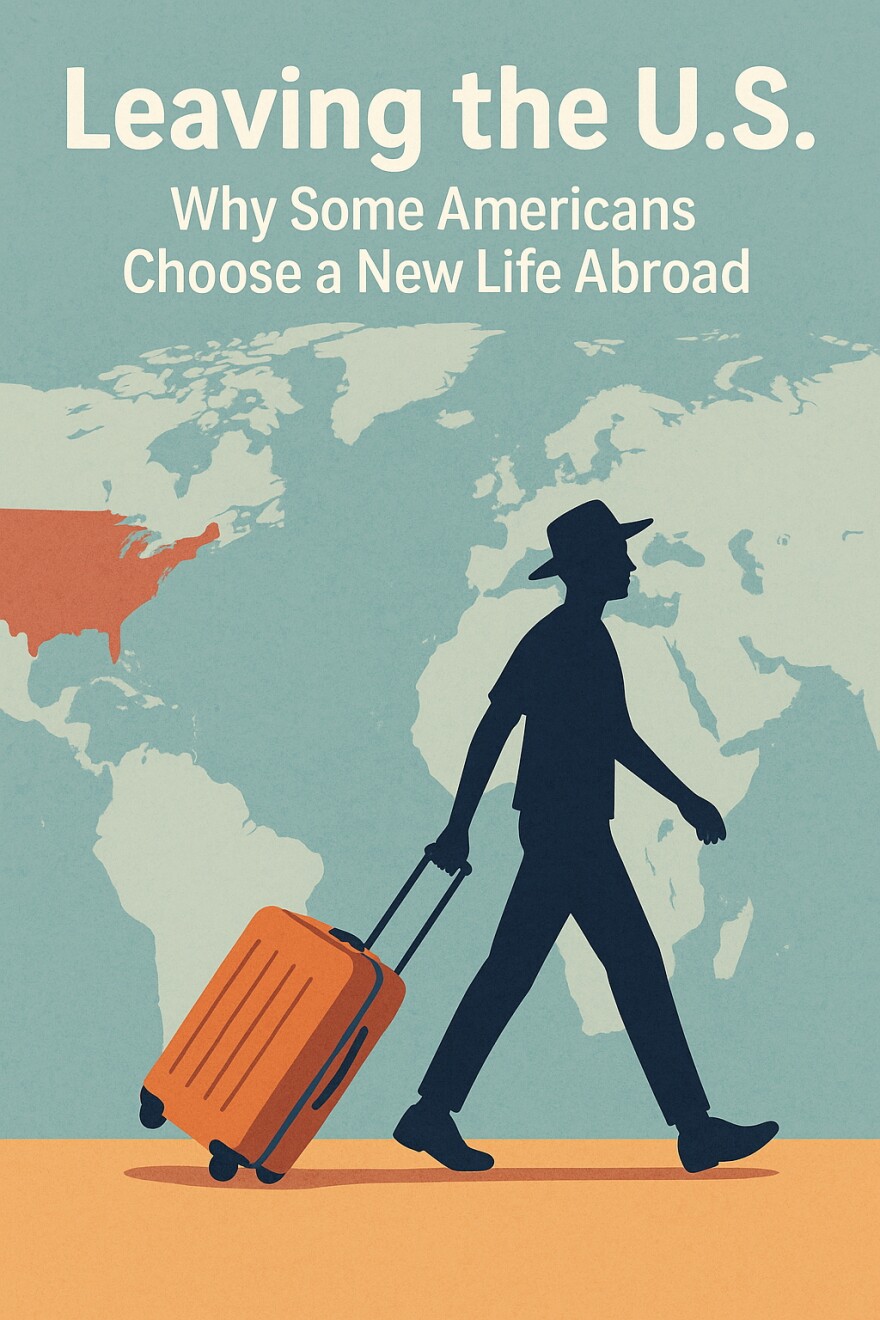More Americans are leaving the United States not for vacation, but for a new life. Some are drawn by politics, others by safety or cost of living or a sense of belonging. But this isn’t something that everyone can do. In most countries, you can’t just show up. You need a visa, and that often means proving steady income or significant savings. That’s why moving abroad is a choice available to only some, usually those with the financial means.
This week’s episode of Locomotion features five guests who have recently expatriated, are in the process of doing so, or who choose to live abroad for part of the year.
Political Climate and Safety
Larry Charness says, “The bulk of the reason for the move is political. The direction this country is going is against almost everything I believe in.”
Kate Redmond recalls, “During the pandemic, I lived in Oaxaca City and I felt much safer there than I did in the North Fork Valley.” She adds, “I lived there in a way that I don’t feel I’m free to live here.”
Raising a Family Abroad
For Jacob Torrey of Ridgway, “We wanted to make sure that she had that opportunity to kind of see things beyond the small community that we have here on the Western Slope.” He and his wife chose New Zealand, where “Not only the school matters, but also the state and the political environment in which that school operates.”
The Visa Equation
Jay, preparing to move to Portugal, says it’s “an easy place for expats to relocate to as far as the visa requirements and income requirements. It’s also super queer friendly, which I like. That and the diversity is really great there too.”
Jay explained that you need to show about $1000/month of income and about $12,000 in savings to qualify for a visa in Portugal.
Requirements are different for every county, in Mexico, for retirees, Charness explains, “You have to prove about $4000 a month… or $75,000 in the bank… and you have to prove that it’s been in there for at least six months.”
Jacob says New Zealand’s “green list of occupations… helps us jump right into a residence class visa… After two years, we can get permanent residency… It definitely makes it a little bit easier for us to kind of commit to something like this.”
The Impact Question
Charness pushes back on the term “expat,” saying it “has taken on really a term of white privilege… Other than that, it’s a difficult process and there’s kind of two ways that people immigrate or expatriate to other countries. One is they’re going to go live with other expats… The other way to do it is to involve yourself in the community… Learn the language, learn how things are done, eat the food.”
Kate Redmond notes that in San Miguel de Allende, “Those folks tend to be the over 80 crowd and they do not learn Spanish… the housing prices have become out of reach for working class Mexicans.” She says, “We talk about it a lot in Guanajuato… and number one - is to learn Spanish.”
Daily Life in Mexico
Lynn Carretta splits her time between Montrose and Ajijic. “I live there in a way that I don’t feel I’m free to live here… It’s just a loving place. The Mexican people are very loving there… it’s a celebration every day.”
She adds, “I go out for coffee in the morning and I go out for dinner every night… you have a cuisine that you just… I can’t believe I’m eating like this for, you know, $15. I have a glass of wine and I have a great meal and it’s a celebration of life every night.”
Healthcare Costs
Jacob says in New Zealand, “The overall insurance is much cheaper… it’s $100 a month instead of, you know, $1000 a month for our family.”
Kate says, “Healthcare there is very affordable… about $1000 a year and that has no co-pay or deductions… I had a friend who broke her shoulder and… something that would have cost $200,000 in the states cost her about $4000.”
Lynn notes, “My physical therapist is $40 a visit… the cleaning there is like $15.00… they don’t try to sell you anything. It’s just a very good experience.”
Economic Ripple Effects
When the wealth of Americans considering immigrating to another country runs up agains the poverty in the destination country - the economic inequality can create complicated cultural and social issues.
Charness warns, “Because the gringos that come… bring a lot of money… the flip side of that is… it has a dismal effect on the… culture… When you want to do the right thing — pay people more — you can end up… literally screwing the Mexicans.”
Lynn compares the jentrification of Mexical communities by expats to housing affordability here at home home: “It’s the same thing as Montrose… But there is no resentment which I haven’t ever felt resented. And I think that’s because you have a little extra money that you spend. And so they’re more welcoming.” Housing costs have roughly doubled in Montrose the last 14 years.
A Complicated Choice
Moving abroad offers the wonderful upside that many are seeing by moving to another country and the complicated impacts that that can have on the local cultures… Also, how the ability to expatriate is one of financial privilege that is certainly not available to all Americans.




